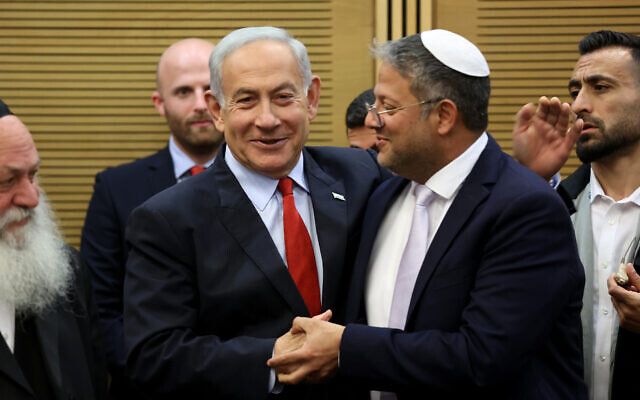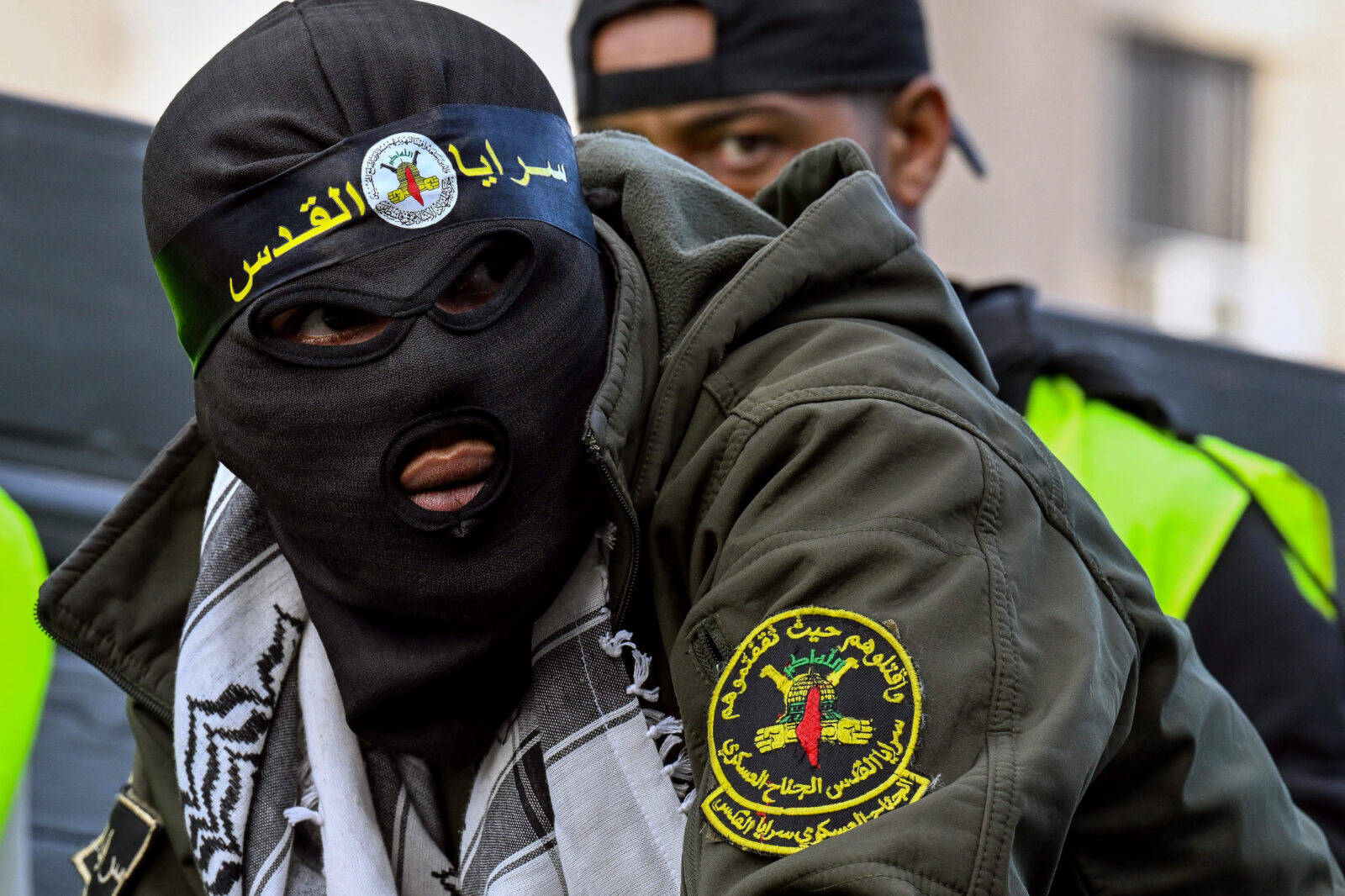Israeli far-right minister opposes cease-fire with Hezbollah
Prime Minister Benjamin Netanyahu (L), greets National Security Minister Itamar Ben Gvir (R) at the Knesset on May 23, 2023 (AFP Photo)
November 26, 2024 12:53 PM GMT+03:00
Israel's far-right National Security Minister Itamar Ben-Gvir has announced that he plans to vote against a potential cease-fire with Hezbollah, citing concerns over security in northern Israel.
Ben-Gvir's stance is part of a broader political divide in Israel, with figures like Israeli Finance Minister Bezalel Smotrich also opposing the deal.
Meanwhile, U.S. officials have been pushing for progress in negotiations, with significant developments in talks about a ceasefire between Israel and Hezbollah.
Despite recent diplomatic strides, key issues remain unresolved.
What happened
- Ben-Gvir's opposition: Itamar Ben-Gvir expressed his intention to vote against a ceasefire agreement with Hezbollah, urging other ministers to follow his lead. He emphasized the need to address security concerns, particularly for Israelis living near the Lebanese border.
- No resignation if cease-fire reached: Despite earlier implications that he might resign if the cease-fire went through, Ben-Gvir clarified he would remain part of the coalition.
- Tensions over recent events: Ben-Gvir raised suspicions about recent Hezbollah-related incidents, suggesting that certain events, like communications failures, may have been part of a larger conspiracy.
- Smotrich’s position: Finance Minister Bezalel Smotrich also opposed the cease-fire, criticizing any potential agreement with Hezbollah. He dismissed it as ineffective, reinforcing Israel’s ongoing commitment to dismantling Hezbollah rather than pursuing peace talks.
Israeli far-right minister opposes ceasefire with Hezbollah
Why it matters
- Internal Israeli opposition: Ben-Gvir and Smotrich’s opposition underscores the deep political divide in Israel regarding a cease-fire with Hezbollah, making deciding to finalize an agreement complicated.
- Security implications: The Israeli government’s decision on a cease-fire will impact the security situation in northern Israel, where Hezbollah poses a major threat.
- US diplomatic involvement: U.S. officials, including senior advisor Amos Hochstein, have been pushing for a ceasefire deal, with recent visits to both Tel Aviv and Beirut. However, significant unresolved issues suggest the deal may take longer to finalize.
A masked member of Palestinian Islamic Jihad Movement attends the funeral of felow fighters killed in an Israeli air raid days earlier, in the Palestinian Yarmuk Camp in the Syrian capital Damascus, on November 18, 2024. - Attacks blamed on or claimed by Israel have intensified in Syria, including in areas near the Lebanese border mainly targeting bastions of the Lebanese movement Hezbollah. (Photo by Louai Beshara / AFP)Photo of Hezbollah UAV intercepted by Israeli air forces over northern Israel, Aug. 25, 2024. (AFP Photo)The Eitan IFV in Gaza. (Photo: IDF)People watch as smoke rises from the site of an Israeli airstrike that targeted Beirut's southern suburbs on November 21, 2024, amid the ongoing war between Israel and Hezbollah. (AFP Photo)
Key takeaways
- The internal political dynamics in Israel, especially opposition from far-right ministers, could delay or prevent a cease-fire agreement with Hezbollah.
- The outcome of the negotiations will affect Israel’s broader military strategy and its security policies, especially along the Lebanese border.
- U.S. efforts to mediate a cease-fire continue, but political resistance in Israel complicates these diplomatic efforts.
November 26, 2024 12:53 PM GMT+03:00


